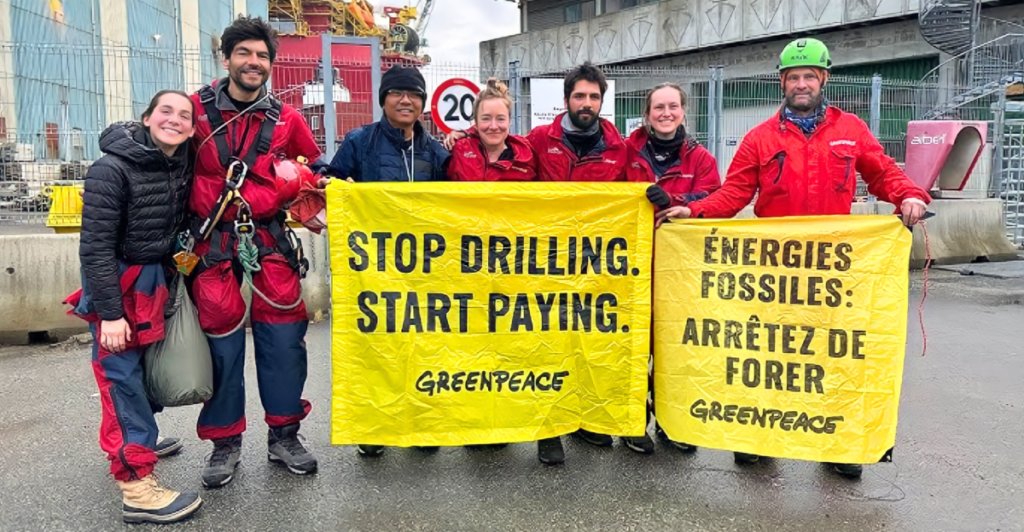
In February 2025, a significant legal confrontation commenced in North Dakota, pitting Energy Transfer, the company behind the Dakota Access Pipeline, against environmental organization Greenpeace. Energy Transfer has filed a $300 million lawsuit, alleging that Greenpeace’s actions during the 2016-2017 pipeline protests led to substantial financial losses. This trial is poised to have far-reaching implications for the United States’ environmental activism and free speech rights.
Background: The Dakota Access Pipeline Protests
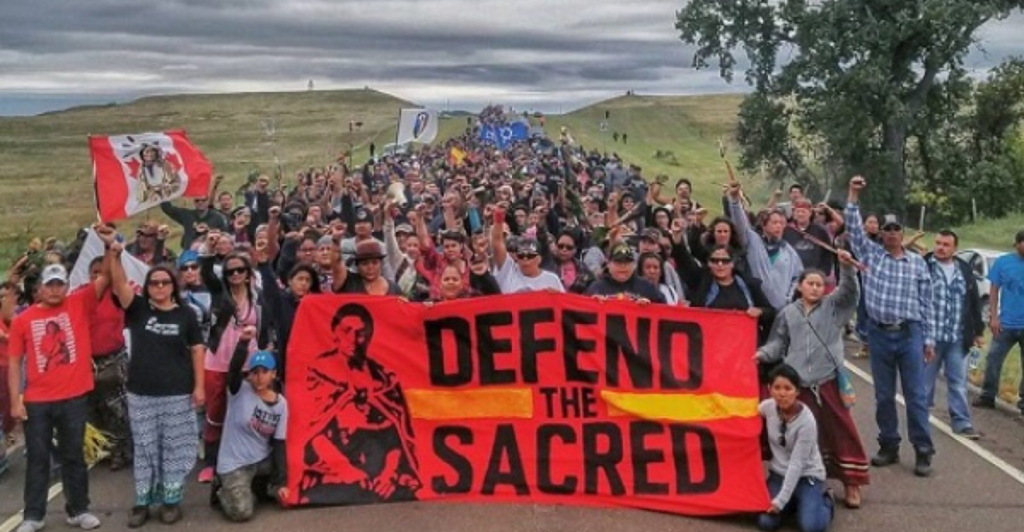
The Dakota Access Pipeline, a 1,172-mile project, was designed to transport crude oil from North Dakota to Illinois. Its proposed route near the Standing Rock Sioux Tribe’s reservation sparked widespread protests in 2016 and 2017. Demonstrators, including Indigenous groups and environmental activists, voiced concerns over potential threats to water sources and sacred sites. Greenpeace played a prominent role in supporting these protests, amplifying the movement’s message globally.
Energy Transfer’s Allegations
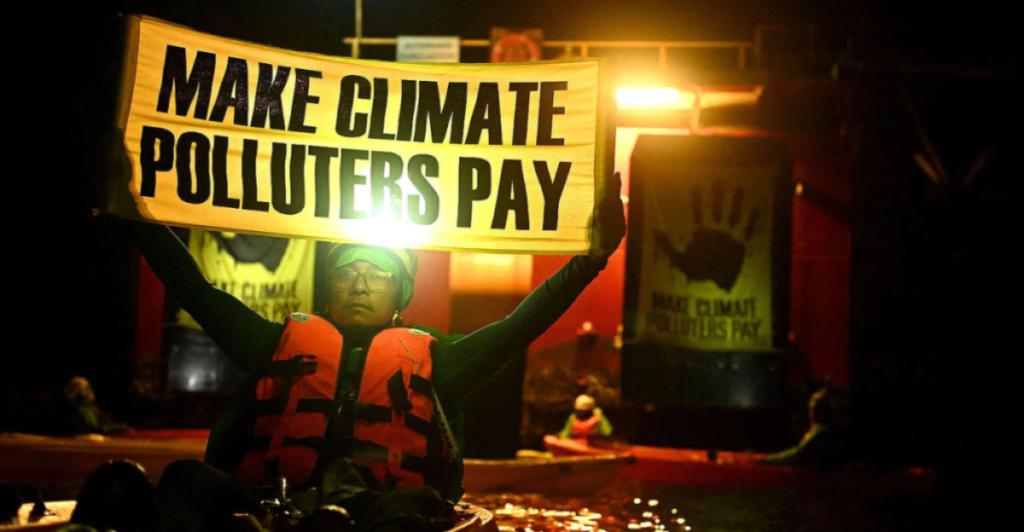
Energy Transfer contends that Greenpeace engaged in an “unlawful and violent scheme” to obstruct the pipeline’s construction. The company claims that Greenpeace’s actions, including disseminating misleading information to financial institutions, resulted in over $300 million in damages. These alleged damages encompass increased security costs, lost profits, and expenses related to public relations efforts to counteract the negative publicity generated by the protests.
Greenpeace’s Defense

Greenpeace refutes the allegations, asserting that their involvement in the protests was peaceful and intended to raise awareness about environmental and Indigenous rights issues. The organization argues that the lawsuit is a Strategic Lawsuit Against Public Participation (SLAPP) designed to intimidate activists and suppress free speech. Greenpeace maintains that their actions were within legal bounds and protected under the First Amendment.
Financial Stakes: Potential Bankruptcy
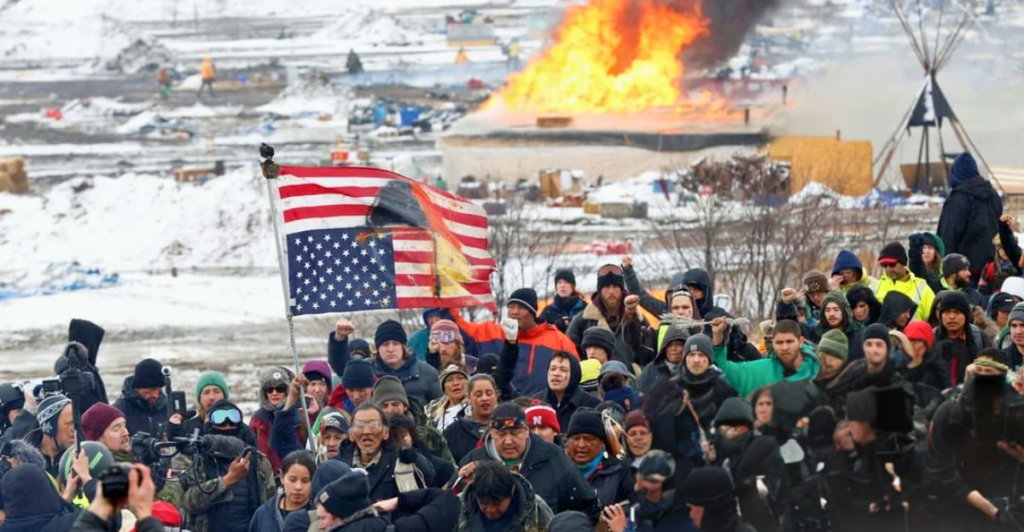
The $300 million sought by Energy Transfer significantly exceeds Greenpeace USA’s annual budget, raising concerns about the organization’s financial viability should the court rule in favor of the plaintiff. A judgment of this magnitude could bankrupt Greenpeace, hindering its ability to continue environmental advocacy and activism. This financial threat underscores the high stakes of the trial for both parties involved.
Implications for Free Speech and Activism
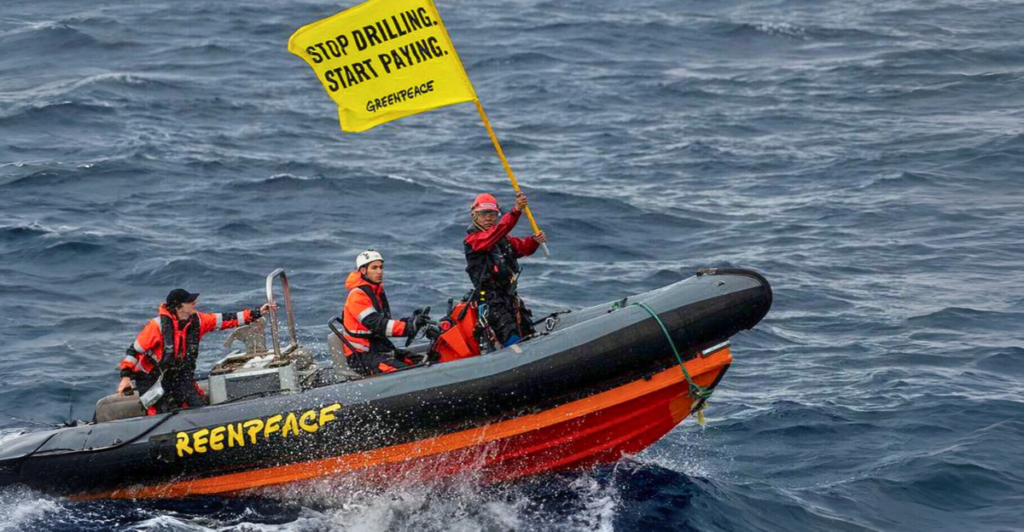
This lawsuit has ignited a broader debate about using legal actions to deter activism. Critics argue that such lawsuits can create a chilling effect, discouraging individuals and organizations from engaging in protest and advocacy due to fear of legal repercussions. The outcome of this trial could set a precedent, influencing how future environmental and social justice movements operate within the legal landscape.
Previous Legal Proceedings
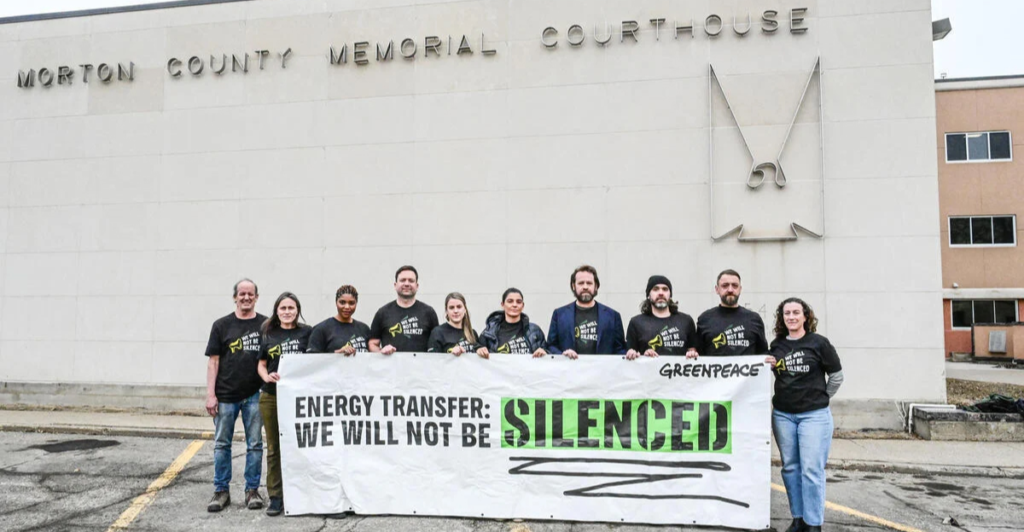
This case is not the first legal confrontation between Energy Transfer and Greenpeace. In 2017, Energy Transfer filed a similar lawsuit in federal court, which was dismissed in 2019. Undeterred, the company refiled the lawsuit in North Dakota state court, leading to the current trial. The persistence of legal actions highlights the ongoing tension between corporate interests and environmental advocacy groups.
International Dimensions: Greenpeace’s Counteraction
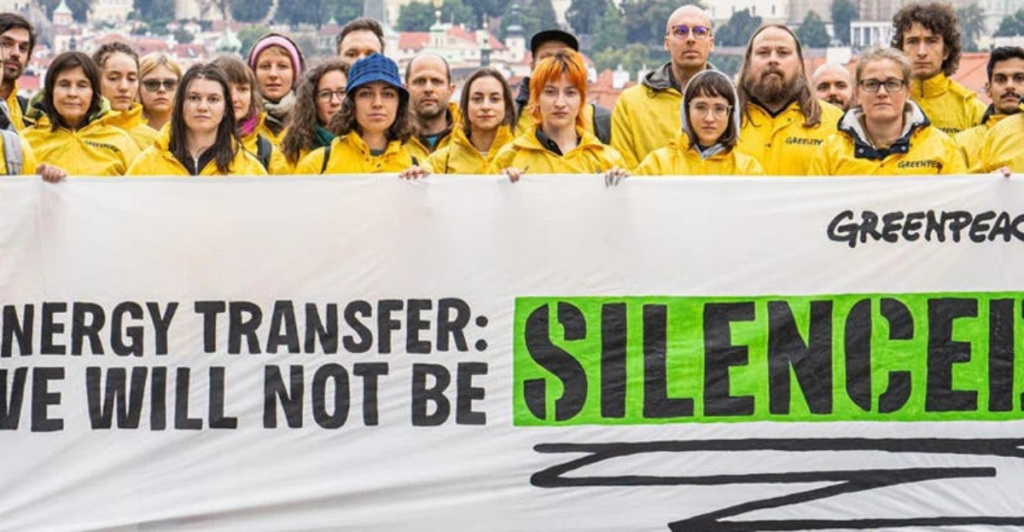
Greenpeace International has initiated legal proceedings in the Netherlands in response to Energy Transfer’s lawsuit. The organization seeks to recover costs incurred from what it describes as meritless lawsuits, framing them as attempts to stifle legitimate protest. This move represents a strategic effort to challenge international corporate legal tactics, potentially influencing global protest rights and corporate accountability norms.
The Role of SLAPP Lawsuits
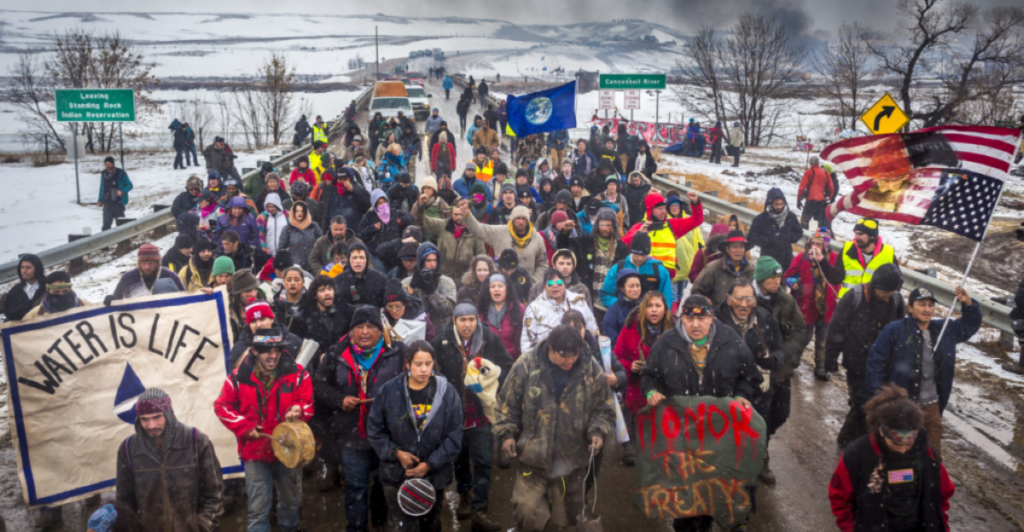
Strategic Lawsuits Against Public Participation, or SLAPPs, are legal actions intended to censor, intimidate, and silence critics by burdening them with the cost of a legal defense. Advocates for free speech express concern that the Energy Transfer lawsuit exemplifies this tactic, potentially setting a precedent that could deter future activism. The trial’s outcome may influence legislative efforts to protect individuals and organizations from such legal strategies.
Perspectives from Legal Experts

Legal analysts closely monitor the trial, noting its potential to redefine the boundaries of lawful protest and corporate accountability. Some experts suggest that a ruling favoring Energy Transfer could embolden other corporations to pursue similar legal actions against activist groups, thereby reshaping the landscape of environmental advocacy. Conversely, a decision favoring Greenpeace might reinforce protections for free speech and the right to protest.
Public and Media Reactions
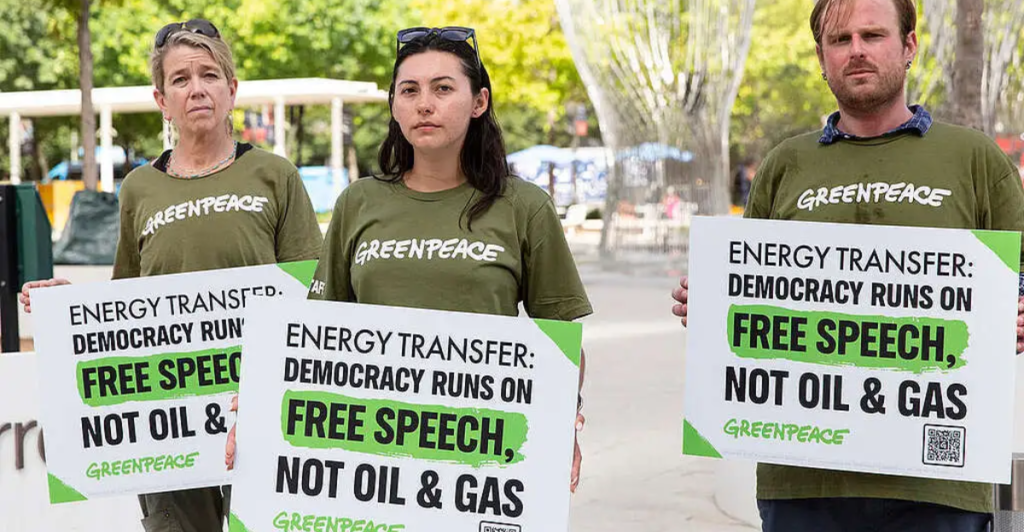
The trial has attracted significant attention from both the public and media outlets. Supporters of Greenpeace view the lawsuit as an attack on environmental activism and free speech, organizing campaigns to raise awareness and funds for the organization’s defense. Meanwhile, proponents of Energy Transfer argue for protecting lawful business operations against what they perceive as disruptive and unlawful protests. This dichotomy reflects broader societal debates about balancing economic development and environmental stewardship.
Potential Outcomes and Future Implications

The verdict of this trial could have lasting implications for both environmental organizations and corporate entities. A ruling favoring Energy Transfer might deter future protests and embolden companies to take legal action against activists. Alternatively, a decision supporting Greenpeace could affirm the rights of organizations to engage in peaceful protest without fear of crippling legal repercussions. The trial’s outcome may also influence future legal strategies employed by both corporations and advocacy groups.
Looking Ahead: What Comes Next?

Greenpeace and Energy Transfer brace for a landmark decision as the trial unfolds. Regardless of the outcome, this case has ignited conversations about the intersection of corporate power, activism, and free speech. Environmental groups rally support, while corporations closely watch how legal precedents may shift. The trial’s impact will likely extend beyond the courtroom, shaping how future protests are organized and how companies respond. The world now waits to see how justice and history will unfold.
Explore more of our trending stories and hit Follow to keep them coming to your feed!

Don’t miss out on more stories like this! Hit the Follow button at the top of this article to stay updated with the latest news. Share your thoughts in the comments—we’d love to hear from you!







